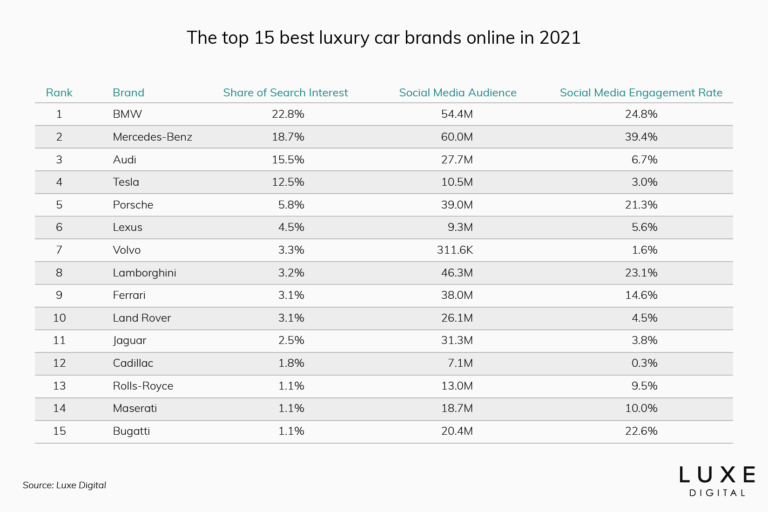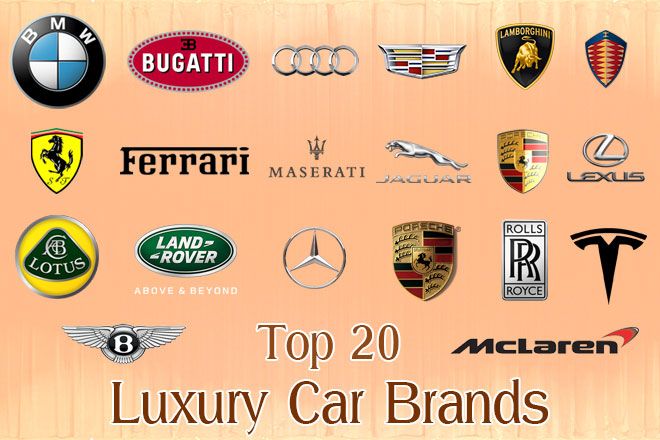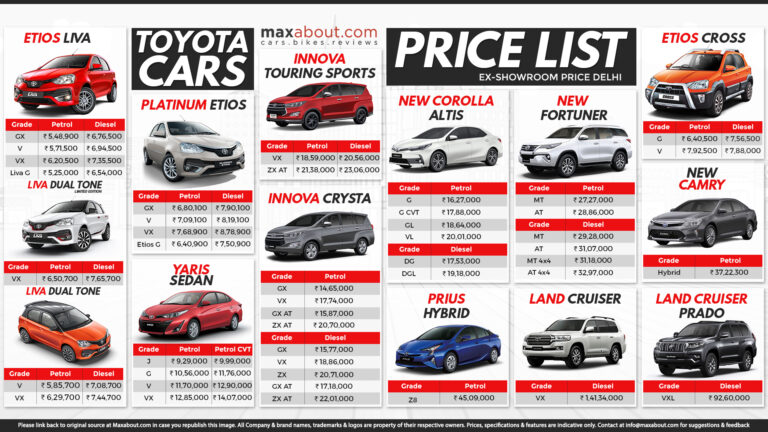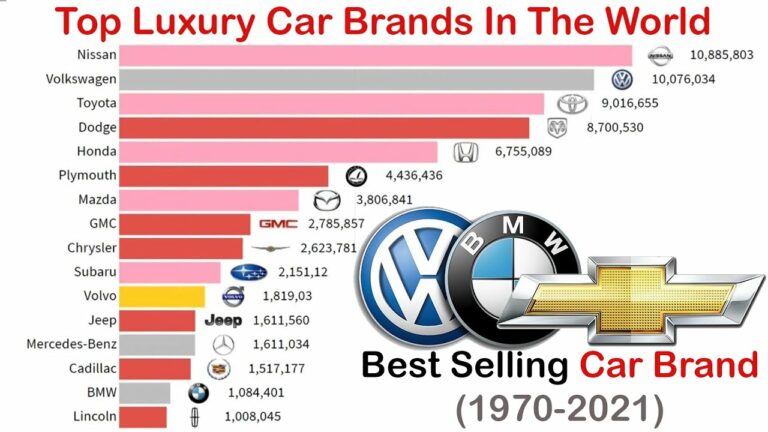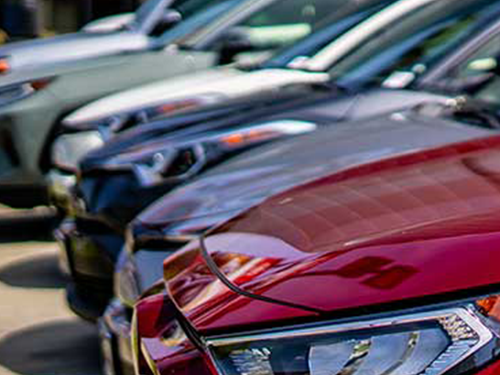Car Speaker Brands: A Comprehensive Guide to Elevating Your In-Car Audio Experience
Car Speaker Brands: A Comprehensive Guide to Elevating Your In-Car Audio Experience cars.truckstrend.com
The roar of the engine, the hum of the tires, and the occasional honk of traffic—these are the sounds of the road. But for many, the true soundtrack to their journey comes from within the cabin, delivered by their car’s audio system. At the heart of this system are the car speakers, the transducers that convert electrical signals into the music we love. Choosing the right car speaker brand isn’t just about picking a name; it’s about defining your auditory experience, impacting everything from the clarity of vocals to the punch of the bass.
Car speaker brands represent more than just manufacturers; they are purveyors of sound philosophies, each with a unique approach to acoustic design, material science, and audio engineering. From entry-level options that offer a significant upgrade over factory units to high-end audiophile brands that promise concert-hall fidelity, understanding the landscape of car speaker brands is crucial for anyone looking to truly enjoy their music on the go. This comprehensive guide will navigate the world of car speaker brands, helping you make informed decisions to transform your vehicle into a personal concert hall.
Car Speaker Brands: A Comprehensive Guide to Elevating Your In-Car Audio Experience
The Anatomy of Great Sound: Why Brands Matter
The vast market of car audio can be overwhelming, but recognizing the importance of speaker brands simplifies the process. A brand’s reputation is built on years of research and development, specific sound signatures, and commitment to quality. Here’s why the brand choice is paramount:
- Engineering Excellence & R&D: Leading brands invest heavily in acoustic engineering, material science, and driver technology. They develop proprietary technologies, unique cone materials, advanced magnet structures, and refined crossover networks to optimize sound reproduction. This translates to better frequency response, lower distortion, and more accurate sound.
- Sound Signature: Each reputable brand often cultivates a distinct "sound signature." Some prioritize crisp, detailed highs, others deep, resonant bass, while many strive for a balanced, natural soundstage. Understanding these tendencies helps align the brand with your personal listening preferences.
- Quality Control & Durability: Beyond just sound, a good brand ensures their products are built to withstand the harsh automotive environment—extreme temperatures, vibrations, and humidity. High-quality materials and rigorous testing contribute to longevity and consistent performance.
- System Integration: Many brands design their speakers to integrate seamlessly with other components within their ecosystem (amplifiers, subwoofers, head units), ensuring optimal synergy and performance.
- Warranty & Support: Reputable brands stand behind their products, offering comprehensive warranties and accessible customer support, providing peace of mind for your investment.

Key Factors When Choosing a Car Speaker Brand
Before diving into specific brands, it’s essential to understand the technical and practical considerations that will guide your choice:
- Sound Quality (Clarity, Bass, Treble): This is subjective but paramount. Do you prefer crystal-clear vocals, thumping bass, or bright, detailed highs? Different brands excel in different areas. Look for low distortion and a balanced frequency response.
- Durability and Build Quality: Car speakers endure a lot. Look for robust materials like rubber surrounds (over foam), durable cone materials (polypropylene, carbon fiber, silk for tweeters), and solid magnet structures.
- Power Handling (RMS vs. Peak):
- RMS (Root Mean Square) Power: This is the continuous power a speaker can handle reliably over time. This is the more critical figure.
- Peak Power: This is the maximum power a speaker can handle for very short bursts. It’s less relevant for sustained performance.
- Match your speakers’ RMS rating with your amplifier’s RMS output to prevent damage and ensure optimal performance.

- Sensitivity (Efficiency): Measured in decibels (dB), sensitivity indicates how loud a speaker will play with a given amount of power. Higher sensitivity (e.g., 90dB+) means the speaker requires less power to produce sound, making it suitable for lower-powered factory head units or external amplifiers.
- Speaker Type:
- Coaxial (Full-Range) Speakers: All speaker components (woofer, tweeter, sometimes midrange) are combined in one unit. Easy to install and budget-friendly, ideal for upgrading factory speakers.
- Component Speakers: Separate woofers, tweeters, and external crossovers. Offer superior sound staging, imaging, and fidelity because you can optimize the placement of each driver. More complex to install and generally more expensive.
- Subwoofers: Designed specifically for low-frequency bass reproduction. Essential for deep, impactful bass.
- Amplifiers: While not a speaker, an external amplifier is crucial for unlocking the full potential of most aftermarket speakers, especially component sets and subwoofers, by providing clean, ample power.
- Vehicle Compatibility: Check speaker sizes (e.g., 6.5-inch, 6×9-inch, 5.25-inch) and mounting depth to ensure they fit your car’s existing speaker locations without extensive modification.
- Budget: Car speakers range from under $50 to thousands of dollars. Define your budget early to narrow down your options. Remember that "you get what you pay for" generally holds true in car audio.
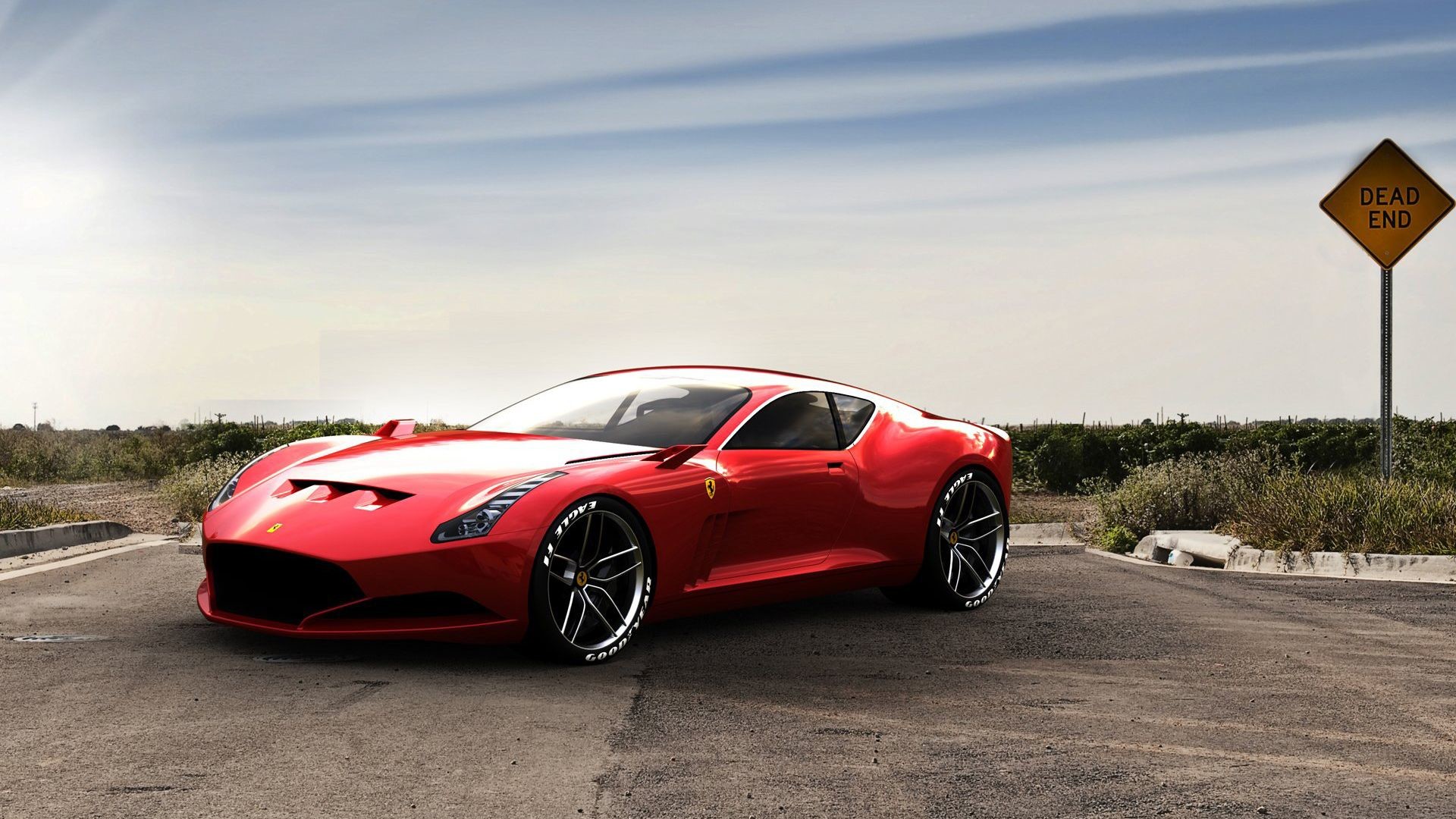
Leading Car Speaker Brands: A Deep Dive
The market boasts a plethora of brands, each carving out its niche. Here’s a look at some of the most prominent and reputable car speaker brands across different price points and specializations:
Premium/High-End Brands (Audiophile Grade)
These brands cater to serious audiophiles who demand the absolute best in sound quality and are willing to invest accordingly.
- Focal (France): Renowned for their incredible clarity, detail, and natural sound reproduction. Focal speakers, particularly their Utopia and K2 Power lines, are celebrated for their sophisticated design, premium materials (like inverted dome tweeters), and accurate sound staging. They offer an immersive listening experience.
- JL Audio (USA): A powerhouse in car audio, JL Audio is famous for its exceptional subwoofers (W7, W6 series) but also produces outstanding component speakers and amplifiers. Their speakers are known for their robust build, impressive power handling, and balanced, dynamic sound with deep, controlled bass.
- Audison (Italy): Part of the Elettromedia group, Audison represents the pinnacle of Italian audio engineering. Their Thesis and Voce lines are highly regarded for their exquisite detail, natural tonality, and expansive soundstage. Audison focuses on creating a truly high-fidelity listening environment.
- Morel (Israel): Known for their warm, rich, and musical sound. Morel speakers, such as the Elate and Virtus series, use advanced technologies like External Voice Coil (EVC™) and DPC cones to deliver incredibly smooth highs, articulate midranges, and punchy bass. They are a favorite among those who prioritize musicality.
Mid-Range/Enthusiast Brands (Excellent Performance & Value)
These brands offer a fantastic balance of performance, quality, and price, providing a significant upgrade over factory systems without breaking the bank.
- Alpine (Japan): A long-standing leader in car audio, Alpine offers a wide range of speakers known for their clear, dynamic sound. Their Type-R and Type-S speakers are popular choices for their solid bass response, clear highs, and overall balanced performance. Alpine also excels in head units and amplifiers, ensuring system synergy.
- Kenwood (Japan): Another Japanese giant, Kenwood provides reliable and great-sounding speakers across various price points. Their Performance Series and Excelon lines offer good sensitivity, balanced sound profiles, and decent power handling, making them excellent choices for direct factory replacements or systems with moderate amplification.
- Pioneer (Japan): A household name in audio, Pioneer’s car speakers are known for their consistent quality and value. Their TS-A and TS-D series offer clear sound with good bass, making them popular for those seeking a noticeable upgrade without a huge investment. They provide a wide selection of coaxial and component speakers.
- Infinity (USA): Part of the Harman International group (along with JBL), Infinity speakers are characterized by their "Plus One" cone technology, which provides more cone area for better bass output. They often feature textile dome tweeters for smooth highs and are known for their good efficiency, making them suitable for factory head units.
- JBL (USA): Also a Harman brand, JBL speakers are known for their vibrant, energetic sound and robust build. Their GTO and Club series offer great value, delivering clear highs, strong midrange, and punchy bass. They are a go-to for those seeking a lively sound and good power handling.
- Rockford Fosgate (USA): "The Punch" is their motto, and for good reason. Rockford Fosgate specializes in powerful, hard-hitting audio. Their speakers (Punch and Power series) are built to handle serious power and deliver impactful bass, making them ideal for rock, hip-hop, and electronic music enthusiasts. They are rugged and reliable.
Budget-Friendly/Entry-Level Brands (Cost-Effective Upgrades)
These brands offer affordable solutions for those looking for a basic upgrade over flimsy factory speakers.
- Kicker (USA): While Kicker also offers higher-end products, they are very popular for their affordable yet impactful speakers and subwoofers. Kicker speakers provide a noticeable improvement in clarity and bass over stock units, making them a great entry point into aftermarket car audio.
- Pyle (USA): Pyle offers extremely budget-friendly options. While not audiophile-grade, they provide a significant volume and clarity boost over very poor factory speakers for those on a tight budget.
- BOSS Audio (USA): Similar to Pyle, BOSS Audio focuses on very affordable solutions. They are popular for basic upgrades but generally don’t offer the sound fidelity or durability of higher-tier brands.
How to Choose the Right Brand for Your Needs
Selecting the perfect car speaker brand involves a blend of technical understanding and personal preference:
- Assess Your Listening Preferences: Are you a bass-head, an audiophile who values clarity above all, or someone who enjoys a balanced sound for all genres? This will guide you towards brands known for specific sound signatures.
- Consider Your Vehicle’s Acoustics: Some cars naturally have better acoustics than others. Larger vehicles often benefit more from component systems, while smaller cars might do well with high-quality coaxials.
- Match Components: Ensure your chosen speakers’ RMS power handling aligns with your amplifier’s output. A mismatch can lead to underperformance or speaker damage. Consider sticking with one brand for speakers, amps, and subs if you like their sound signature, as they are often designed to work synergistically.
- Read Reviews and Seek Expert Advice: Online reviews, forums, and discussions can provide valuable real-world insights. Visit local car audio shops; experienced professionals can offer tailored advice and sometimes even demonstrate different setups.
- Listen Before You Buy (If Possible): The best way to choose is to hear the speakers yourself. While not always feasible for car speakers, some high-end audio shops have demo boards where you can compare different models.
Installation Considerations & Challenges
Choosing the right brand is only half the battle; proper installation is crucial for optimal performance.
- DIY vs. Professional Installation: While coaxial speakers can be a relatively straightforward DIY project, component sets and subwoofer/amplifier installations are more complex and often best left to professionals. Proper wiring, crossover setup, and sound deadening require expertise.
- Wiring and Sound Deadening: Use appropriate gauge wiring to prevent power loss and ensure clean signal transfer. Sound deadening material (like Dynamat) applied to door panels significantly reduces vibrations and road noise, allowing your speakers to perform their best.
- Amplification: Most aftermarket speakers, especially component sets, benefit immensely from an external amplifier. This provides the clean, sufficient power needed for dynamics and clarity, preventing distortion at higher volumes.
- Matching Impedance: Ensure your amplifier’s output impedance matches your speakers’ impedance (typically 2 or 4 ohms) to prevent damage to either component.
- Overcoming Limited Space: Some vehicles have very shallow mounting depths. Always measure before purchasing, or look for "slim-mount" speaker options from brands that specialize in fitting challenging spaces.
Car Speaker Brands: Typical Price Ranges
It’s important to note that prices vary significantly based on the specific model, size, type (coaxial vs. component), and retailer. This table provides typical price ranges for common speaker types within each brand’s offerings.
| Brand | Typical Product Type (e.g., Coaxial, Component, Subwoofer) | Typical Price Range (Per Pair/Unit) | Key Feature/Reputation |
|---|---|---|---|
| Focal | Component Sets (Mid-range to High-End) | $300 – $2000+ | Exceptional clarity, detail, natural soundstage; premium materials. |
| Coaxial Speakers | $150 – $500 | Clear upgrade over factory, detailed highs. | |
| JL Audio | Component Sets (C2, C3, C5, C7 series) | $250 – $1500+ | Robust build, balanced sound, powerful and controlled bass. |
| Subwoofers (W0, W3, W6, W7 series) | $150 – $1000+ | Industry leader in bass performance, tight and impactful. | |
| Audison | Component Sets (Prima, Voce, Thesis series) | $400 – $3000+ | Audiophile-grade, exquisite detail, natural tonality, expansive soundstage. |
| Morel | Component Sets (Maximo, Virtus, Elate series) | $200 – $1500+ | Warm, rich, musical sound; smooth highs, articulate mids. |
| Alpine | Coaxial Speakers (Type-S, Type-R) | $80 – $300 | Clear, dynamic sound, good bass response; reliable performance. |
| Component Sets (Type-R, Type-X) | $200 – $600 | Strong power handling, balanced and detailed sound. | |
| Kenwood | Coaxial Speakers (Sport, Performance, Excelon) | $50 – $200 | Reliable, good sensitivity, balanced sound profile, great value. |
| Component Sets (Excelon) | $150 – $400 | Good clarity, solid bass for the price. | |
| Pioneer | Coaxial Speakers (TS-A, TS-G, TS-D) | $40 – $150 | Consistent quality, good clarity and bass for entry/mid-level. |
| Component Sets (TS-D, TS-Z) | $150 – $500 | Wide range of options, from value to performance. | |
| Infinity | Coaxial Speakers (Reference, Kappa) | $70 – $250 | High sensitivity, clear highs (textile dome), "Plus One" bass. |
| Component Sets (Kappa, Reference) | $180 – $450 | Excellent efficiency, crisp sound, good for factory head units. | |
| JBL | Coaxial Speakers (Stage, Club, GTO) | $50 – $200 | Energetic, lively sound, punchy bass, good value. |
| Component Sets (Club, GTO) | $150 – $350 | Robust build, clear sound, great for rock/pop. | |
| Rockford Fosgate | Coaxial Speakers (Prime, Punch) | $60 – $250 | Strong, punchy bass, robust build, good power handling. |
| Component Sets (Punch, Power) | $200 – $600 | Designed for power and impact, excellent for bass-heavy music. | |
| Kicker | Coaxial Speakers (KS, DS, CS) | $50 – $180 | Noticeable clarity and bass improvement over stock, good entry point. |
| Subwoofers (CompC, CompR, L7) | $100 – $500 | Affordable and powerful bass solutions. | |
| Pyle | Coaxial Speakers | $20 – $80 | Ultra-budget option, basic upgrade for very poor factory speakers. |
| BOSS Audio | Coaxial Speakers | $20 – $70 | Very affordable, basic functionality, entry-level upgrade. |
Note: Prices are estimates for a pair of speakers or a single subwoofer and can vary greatly by retailer, sales, and specific model variations.
Concluding Summary
Choosing the right car speaker brand is a critical step in building a car audio system that truly resonates with you. It’s about more than just volume; it’s about clarity, detail, balance, and the emotional connection to your music. By understanding the different philosophies and strengths of leading brands, considering your budget, listening preferences, and vehicle compatibility, you can confidently navigate the market. Whether you opt for the pristine clarity of Focal, the powerful dynamics of JL Audio, or the reliable performance of Alpine, investing in quality car speakers from a reputable brand will undeniably transform your daily commute into an enjoyable, immersive auditory journey.
Frequently Asked Questions (FAQ) about Car Speaker Brands
Q: Do more expensive speakers always sound better?
A: Generally, yes. Higher-priced speakers often use superior materials, more advanced engineering, and undergo stricter quality control, leading to better sound quality, durability, and performance. However, diminishing returns exist, and personal preference plays a huge role. A perfectly matched mid-range system can sound better than a poorly installed high-end one.
Q: Can I mix and match speaker brands in my car?
A: Yes, you can. Many enthusiasts mix and match brands to achieve a specific sound signature or to optimize different parts of their system (e.g., JL Audio subs with Focal components). However, for optimal sound staging and tonal balance, using speakers from the same brand or even the same series is often recommended, as they are designed to work together acoustically.
Q: Do I need an amplifier for aftermarket speakers?
A: For most aftermarket speakers, especially component sets and higher-end coaxials, an external amplifier is highly recommended. While they might play with a factory head unit, an amplifier provides cleaner, more powerful, and undistorted power, allowing the speakers to reach their full potential in terms of clarity, dynamics, and volume.
Q: What’s the difference between RMS and Peak power?
A: RMS (Root Mean Square) power is the continuous power a speaker can handle reliably over an extended period without damage. This is the most important rating. Peak power is the maximum power a speaker can handle for a very brief instant (like a sudden bass drum hit). Always match your amplifier’s RMS output to your speakers’ RMS rating.
Q: How important is speaker sensitivity?
A: Speaker sensitivity (measured in dB) indicates how efficiently a speaker converts power into sound. A higher sensitivity rating (e.g., 90dB+) means the speaker will play louder with less power. This is crucial if you plan to power your speakers directly from a factory or aftermarket head unit without an external amplifier. For amplified systems, it’s less critical but still contributes to overall efficiency.
Q: Is DIY installation recommended for car speakers?
A: For basic coaxial speaker replacements, DIY is often feasible with some basic tools and knowledge. However, for component sets (which involve separate tweeters and crossovers), subwoofers, amplifiers, and complex wiring, professional installation is highly recommended. Professionals ensure proper wiring, tuning, and integration, maximizing your system’s performance and avoiding potential damage.

